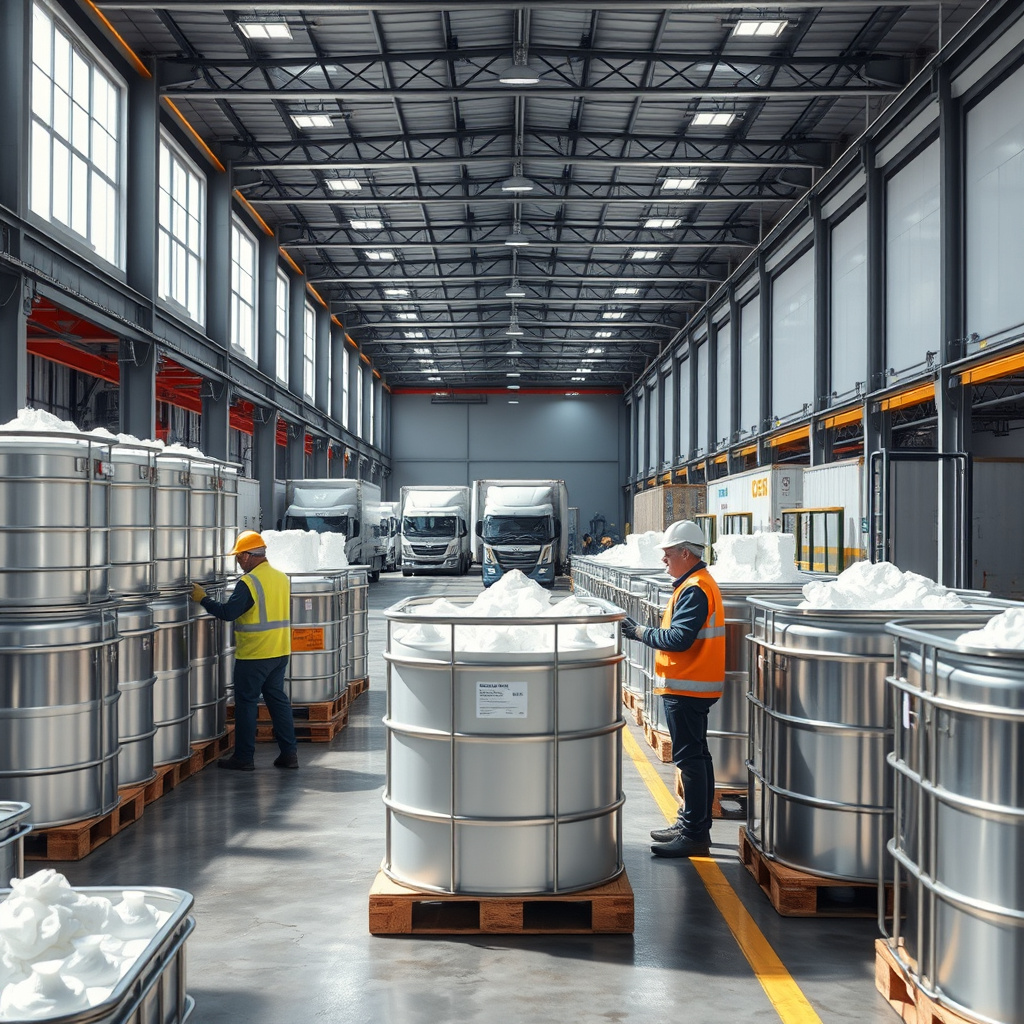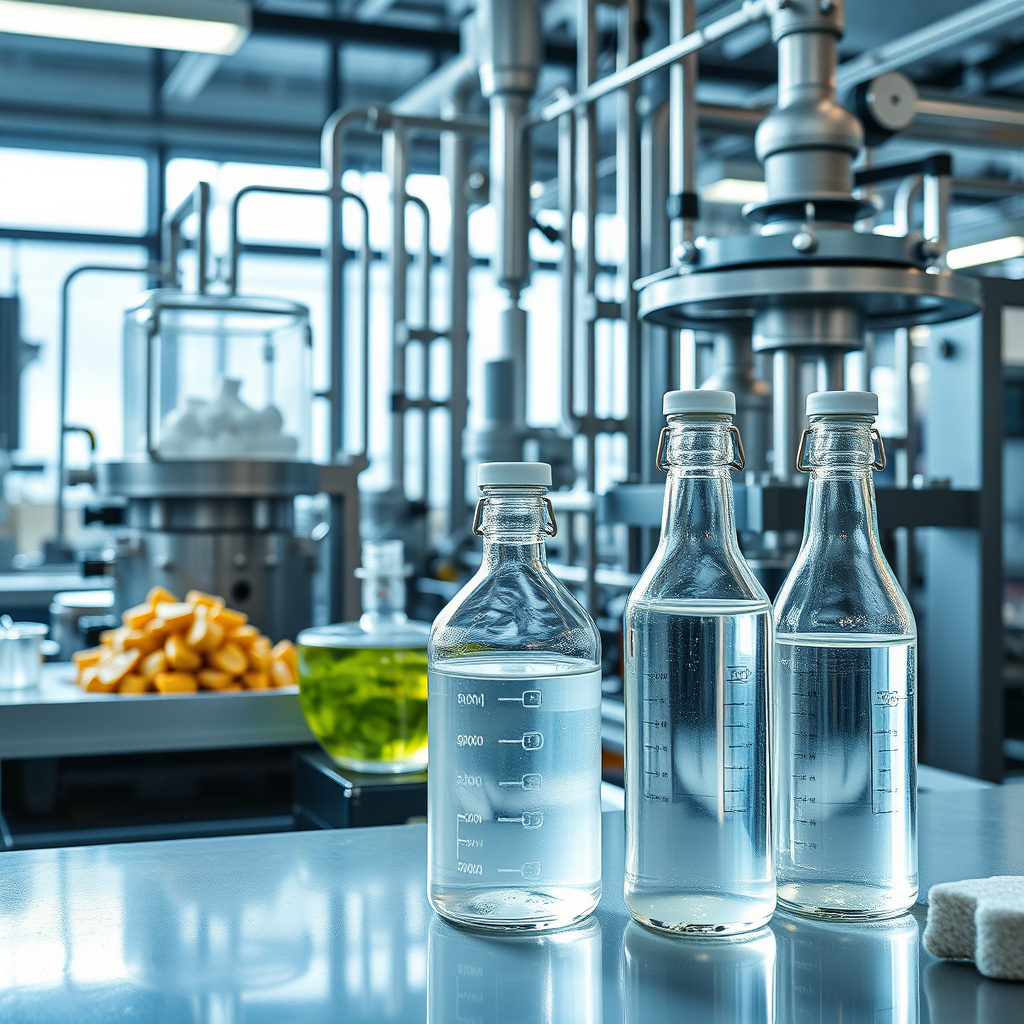Understanding Glycerin Production Process
The glycerin production process is a critical aspect of the chemical industry, focusing on the conversion of raw materials into glycerin, a versatile compound used in numerous applications. Glycerin, or glycerol, is a colorless, odorless liquid that is sweet-tasting and non-toxic, making it ideal for use in food, pharmaceuticals, and cosmetics. The production process typically involves the saponification of fats and oils, which are converted into glycerin and fatty acids through a chemical reaction with an alkali. This process is essential for producing high-quality glycerin that meets industry standards and customer expectations.
Raw Materials in Glycerin Production
The primary raw materials for glycerin production are natural fats and oils, such as palm oil, soybean oil, and animal fats. These materials undergo a rigorous selection process to ensure they are free from impurities and contaminants, allowing for the highest quality glycerin to be produced. The choice of raw material can influence the final properties of glycerin, including its viscosity, purity, and stability. As a leading supplier, DIPLOMATA ensures that only the finest raw materials are utilized in the glycerin production process, reinforcing our commitment to quality and reliability.
The Saponification Process
Saponification is the cornerstone of the glycerin production process. In this chemical reaction, triglycerides present in fats and oils react with a strong base, typically sodium hydroxide or potassium hydroxide, resulting in the formation of glycerin and soap. The reaction occurs in a controlled environment, where temperature and pressure are carefully monitored to optimize yield and purity. The efficiency of the saponification process directly impacts the quality of the glycerin produced, making it crucial for manufacturers to employ advanced techniques and equipment.
Separation and Purification
After saponification, the next step involves the separation of glycerin from the soap and other by-products. This is typically achieved through a combination of mechanical and chemical processes, including centrifugation and filtration. Once separated, the glycerin undergoes purification to remove any remaining impurities, such as free fatty acids and residual alkali. This purification process is vital for producing glycerin that meets the stringent quality standards required by various industries, including food and pharmaceuticals.
Quality Control Measures
Quality control is an integral part of the glycerin production process. At DIPLOMATA, we adhere to strict quality assurance protocols to ensure that our glycerin meets or exceeds industry specifications. This includes routine testing of raw materials, in-process monitoring, and final product analysis. By implementing these measures, we guarantee that our glycerin is of the highest quality, suitable for a wide range of applications across various sectors.
Applications of Glycerin
Glycerin produced through the glycerin production process has a multitude of applications. In the cosmetic industry, it is used as a humectant, helping to retain moisture in skin care products. In the food sector, glycerin serves as a sweetener and preservative. Additionally, it is utilized in pharmaceuticals as a solvent and in the production of antifreeze and plastics. The versatility of glycerin makes it a valuable commodity in numerous markets, showcasing the importance of efficient production processes.
Environmental Considerations
The glycerin production process must also consider environmental impacts. Sustainable sourcing of raw materials, as well as implementing eco-friendly production methods, are essential for minimizing the ecological footprint. DIPLOMATA is committed to sustainable practices, ensuring that our glycerin production aligns with environmental regulations and promotes sustainability throughout the supply chain.
Future Trends in Glycerin Production
As industries evolve, so too does the glycerin production process. Innovations in technology and production methods are leading to more efficient and sustainable practices. This includes the use of bio-based feedstocks and advancements in purification techniques. Staying at the forefront of these trends allows DIPLOMATA to maintain our position as a leading supplier of high-quality glycerin and other chemical products, meeting the changing needs of our customers.
Conclusion: The Role of DIPLOMATA in Glycerin Production
DIPLOMATA is dedicated to providing premium-quality glycerin through an efficient and reliable production process. Our expertise in the chemical industry, combined with our commitment to quality and sustainability, positions us as a trusted partner for businesses across the United States looking for superior chemical solutions. Our extensive distribution network ensures that we can meet the demands of clients on the East Coast, West Coast, Midwest, and Southern states, solidifying our reputation as a leading supplier of glycerin and other oil-based chemicals.


